Baltimore’s Micah E. Wood is a true multidisciplinary artist, his practices as diverse as the city’s vibrant arts scene. He’s a photographer who’s captured Snail Mail, Bartees Strange, and Nourished by Time; an artist manager giving a leg-up to local creatives; and a musician himself, whose poppy music touches on indie rock, synthpop, disco, and hip hop. What’s always been at the heart of Wood’s artistry is community.
Wood’s impulse for connection is at its strongest on his new, third record, YOU, ME, THE REIGN, which jumps between battling political unrest, protesting against capitalism, and singing about love. These disparate themes come together cohesively, since they’re each explored with the same amount of passion. The music, inspired by everything Wood’s listened to during his life, reflects this: rootsy indie pop (“Altered Kindness”), synth-heavy disco (“Mesmerized”), dance punk (“Don’t Wanna Go Back”), and even homages to no wave (“Delusion”) are palpable, leaving YOU, ME, THE REIGN as Wood’s most ambitious set of songs.
As I learned more about the record when talking to Wood, his selfless nurturing of community was unshakeable. It already bled through the music but hearing it from the man himself was nothing short of illuminating. He’d take the time to name drop his influences, always adding on how good they are. He said his wife was always cooler than him, and that he felt like he just got cool yesterday. He’d go into thorough detail praising his collaborators, most of whom are from Baltimore. In this current time when the world feels so volatile, Wood’s advocacy for respect is a necessary and inspiring notion. Banding together is more important than ever. For that, YOU, ME, THE REIGN is a vital record. In Wood’s words, it’s “a record about protecting the people you love.”
In our chat, Wood spoke about how YOU, ME, THE REIGN differs from his past musical projects, his relationship with collaboration, and how Baltimore and his photography practice have influenced his approach to being a musician.
This is your first full-length album since your self-titled from 2019. What was the initial idea you had going into recording it?
Micah E. Wood: Often with my records, the sound I’m going for comes first—and then the subject matter. It’s always been deeply personal music, and not that this record isn’t personal, but my last record was self-titled because I was doing a lot of self-exploration. I wrote it when I was like 27, which I feel is the age when you start really being like, “Okay, I think I get who I am.” Since then, I have made an EP of disco songs and an EP of rock songs.
I’d been exploring different sides of myself. Instead of pulling inspo from one part of my life, it’s all the music I listen to, and the music my wife’s put me on to. I was bringing in all these sounds like old soul funk and bass-driven stuff, but also hip hop and indie rock that I grew up on, and some post-punk, which is cool. I feel like I’ve always had a voice for punk, but I’ve never listened to it. Over the last three years, I’ve been getting more into punk music and noise pop, and groovy, groovy strange stuff like Stereolab and Sault.
This record started with bass grooves written on piano, and then sent over to a local bassist, Jude Botton, who played on most of the record and who’s a beast. Everything started with a little bassline and a drum part. So, for this record, it was very like I wanted to feel it first.
It’s interesting that you say you just started to get a grasp on genres like post-punk because it comes very naturally. Am I right in saying this record feels looser than your previous ones?
MEW: Yeah, I think it also is like aging. I don’t know, I don’t have a perfect voice, and I never will. I’ve spent my late 20s and into my early 30s taking vocal lessons, trying to sing better, play longer sets with my band, and be able to sing night after night. I’ve gained so much more power and confidence in my voice and songwriting. For some reason, it feels like you get as polished as you can, but then you’re like, “Okay, now I can let loose.”
A goal with this record was to use little to no autotune for little corrections if I needed to, but it made me feel honest and human. Especially because all my music starts electronic, it’s very cool to carve that away and add humanity back in. I do massively still give a shit, and this is the proudest I’ve ever been with my music. For the first time in my career, I wasn’t like, “I wish that voice was a little different there…” It was more like, “It is what it is.” It is correct because it’s my music and I have to be the one to sing it.
How do you view this record compared to your other musical endeavours? Revisiting your past music, on each release you’re exclusively tapping into one genre. Working with a lot of collaborators is also a consistent theme in your discography. Does it feel different at all on YOU, ME, THE REIGN?
MEW: I think it’s my most mature, but also most fun record. I feel like exploring all those genres made me realize that… I don’t know, I think about it very similarly to photography. No matter how much I push my photography in different directions, I’ve gotten to a point where my artistic voice, not literal voice, connects all my photos together in a way that feels like you can almost tell it’s my photo, even when it’s shot with a flash at night versus natural light.
I feel like I made some of my most different songs ever. I sent one to a friend, and they were like, “Now that’s a classic Micah E. Wood!” I was like, “Huh, what?” I feel like it’s something I’d never even thought of, while pushing my music in a whole different direction. For a second, I was having a little existential crisis there. Then I realised this means I can do whatever the fuck I want, and because it’s me, it’ll feel like me. So, I don’t have to be so rigid on genre.
I feel like there’s just a big freedom with genre lately, like even on mainstream pop records. I always say the thing I love about Baltimore so much is that it’s genre-diverse. It’s ADHD in the best way. You’ll go to a show where there’s a rapper opening for a rock band, opening for a noise band, and it just works. With my new record, I definitely knew I could make the themes connect. But it was definitely the hardest record to sequence out of any I’ve ever done, just because when you’re sequencing all these different genres and ideas together, you don’t want to lose momentum, emphasis, impact, and trying to hopefully keep people engaged through the whole record.
I was just about to ask about the sequencing—I felt like it was very strongly sequenced.
MEW: Thank you.
There’s flow there, and it’s consistent. Yes, it jumps from the more rootsy dance songs to something more disco, but it feels natural. What was the challenge to get that right?
MEW: I knew where I wanted it to start and end. I knew “Melted Away” was the intro. I knew “Hojicha” was the ending, they just so perfectly start and end the record. Both have the singer Eyas vocally riffing on both of them. And I didn’t want to throw all the singles up front. I’ve also seen with the streaming era that bands don’t feel the need to do that anymore and that’s great. That’s the easiest thing—you have an upbeat side and a chill other side. I wanted to create hills and valleys, but also not lose the political and romantic messages. It had to constantly switch between you and me, and the reign.
I want to ask about the political leanings of the record too. Going into it, was that by design to have it more pronounced, or did it become that way over time? Some of the lyrics have become increasingly relevant, given the state of America and the world.
MEW: I think “Delusion” came about first, and I didn’t even think about how political it was. I was listening to a lot of Automatic, a post-punk band my wife showed me, they rule. I was like, “What would it sound like to make like a post-punk song?” It ended up becoming this song about like a delusional billionaire. I think the more I listen to it, the more I think it’s just about Elon Musk. You know, he’s got in hair plugs, and I’m a bald guy. I was thinking to myself, “Does vanity start deteriorating interior?” I think I have good values. I think I have good ethics. I didn’t even think that song was about me at all. But then I realized it was a song that was like, if I start caring about getting hair plugs and getting work done to try to look hot for whatever societal norms… I’m not saying everyone who does that is bad, but I’m saying, could I personally make it out of vanity and still end up as an empathetic person? So, it’s a song about someone that’s just completely off the rails.
Then, I had the beat for the title track for a while, and I had that hook “You, me, and the reign,” but I didn’t know what it meant yet. It just fit the cadence so perfectly. Then I wrote “Hojicha,” which is like an anti-capitalist love song. This idea that capitalism brings a lot of bad to the world, but there’s also a really good feeling about going out with the person you love, buying a nice drink, and sharing a nice meal. I think people are confused by those that don’t like capitalism—they assume we don’t want joy. Like, “Oh, you bought something, so you’re a capitalist.” It’s like, we exist within it, we can’t destroy it—not singlehandedly—so am I not supposed to have a nice meal, or go buy art from a friend? So, that song “Hojicha” is about trying to find joy in the world.
Then, “You, Me, the Reign” hit me and ended up becoming the perfect title for the record because I had that hook. I didn’t want to write a song about rain on your wedding day because we’ve done that, but then I thought it could be a song about someone named Lorraine—but I don’t know any Lorraines. And then Trump won. It was that day that I realized, yeah, it’s the reign of the king. I immediately wrote the whole verse—both verses were written within like 30 minutes. I had been sitting on this beat for like six months. I wrote it all in like an hour.
Immediately, I had clarity, and then I brought one of my favorite Baltimore rappers, Eze Jackson. What’s unique about him is that he works on political campaigns. He works for the all-black radical free paper. He’s like a rap elder in the scene. He’s in his 40s, he mentors other rappers, he helps put them on, and he’s very smart. So I gave him the task: Can you rap about someone named Lorraine, who had given you all the warnings, and we just didn’t respect her enough? Like, we didn’t really take to heart what she had to say, because we’re like, “No, things are good right now. We want to celebrate. We want to have joy. We want to forget about politics.” And this person, Lorraine, knew that we had to keep our eyes focused. And he wrote that rap. It was stunning. It hit every message I was looking for, and so perfectly. So that song was then like, “Okay, this is a love record, it’s a political record, but most of all, it’s a record about protecting the people you love.”
It must be amazing how you’ve deftly communicated these very real and complex things in this body of work.
MEW: I think, historically, punk and disco are both very political. They take politics in different ways, right? Like punk is in your face: “Fuck you, we deserve this. We deserve freedoms, we deserve rights, you can’t get us down.” Then disco is like dancing through the pain, but it’s also about queer and black liberation. All the best disco came from queer people and black people. And rock is in the middle, right? Rock used to think disco wasn’t real music. They used to think punk was too heavy. Since then, it’s changed a lot. There’s so much disco that overlaps into indie rock, and there’s so much punk that overlaps into indie rock. It’s very fascinating to think about that history as a political record of making a punk-inspired, disco-inspired record that has more to say than just having fun, while also hopefully having fun.
Exactly. A big thing I felt while listening to your record, despite everything else, is that it’s very fun to listen to. If I’m not mistaken, are most of the collaborators on the record from Baltimore?
MEW: Yeah, I think. I met this cool jazz trumpet player in Philly, who sent me the stems virtually, but everyone else is from Baltimore.
Is that the first time for your records where everyone is from the same city?
MEW: I think it ends up happening a lot for me. I’m very inspired by this city. I mean, I’m sure you’ve heard so many great artists from Baltimore.
Just for the art scene alone, you know… I’m on the other side of the world, but it’s a place I’d love to visit.
MEW: Well, please come visit. You got a place to stay.
*laughs* Thank you!
MEW: But Baltimore is a special strange place where every few years, it gets its public recognition in little bursts. Like, Beyonce and Drake doing a Baltimore Club thing. Dan Deacon going viral on TikTok, people talking about his scores and movies. The thing with me with Baltimore is like, “Hey, I’m surrounded by so much good talent, why not utilize it?” Sometimes I’ll just be at a show, be really inspired by someone, and I’ll write something that I’d want no one else in the world rather play on it than them.
You worked with vocalists and instrumentalists on this record. How do they push you creatively, or what do you pull out of them when you collaborate? What’s that relationship like?
MEW: That’s a great question. I would say most of the time, it works two ways. Sometimes I have every single part and I’m like, “Give me a version of this,” and I just tell them they can add their own little sauce, if they feel so inclined. Other times, I’m looking for a thing, like often when I work with Eyas… What’s fun about Eyas who sings backing on “Melted Away,” “Hojicha,” she’s a little bit in “Mesmerized,” she’s everywhere. She’s on 92 percent of every song I’ve ever made. If you hear a beautiful girl’s voice, she’s there. For her sometimes, at this point in our collaboration of like 10 years at it, I’m just like, “Give me a little ‘ooh’ riff thing,” and she’ll do it.
Speaking of the looseness of the record, with some of the collaborators… “Wunder” I specifically wanted it to be the final part of the record, right before it ends with “Hojicha.” I’ve been listening to a lot of jazz, but I am far from a jazz artist, I’m just a fan, right? So, I brought in a jazz drummer. The drummer that’s on most of the songs is my live drummer, Jake Fine, but then the opening track and “Wunder” has Andrew Young, who plays with Eyas live. I brought in Andrew, Jude, who’s also Eyas’ live bassist, and one of my favourite singers and piano players Britt Olsen-Ecker of the band Outcalls, an operatic duo who rule.
I brought them to the studio and showed them exactly all the parts I wanted them to play—the bass part, the drums, the piano, and then I told them, “Once you finish the verse chorus, verse chorus, here’s the guided chords for the rest of it—I just want y’all to jam out.” They had one couple minute practice, they did two takes, and the second take is what you hear. I wanted rules and parameters. And then I brought in my favorite saxophonist who on every other part of the record, he’s pretty much playing what I told him to, but in this moment, near the end of the record, I told him, “You get two takes.” He heard the song for the first time, played to it, then played to it a second time. That was my way of making sure it felt really loose. We also turned the click track off the second the chorus ends. So, the second chorus happens, we muted everyone’s click track, so they were only playing with each other. I was hoping that that would work as a second to last song as a way of taking the record, smoothing it, then stripping it apart.
That’s awesome. I want to take it back to your photography work—that’s how I discovered you in the first place. I recognised your name from some press shots you did for Nourished by Time. His music is fantastic. It’s so vital, but those shots are fantastic, seriously.
MEW: Thank you, thank you.
The way you captured him like that, it’s just in the music. That’s what I love about musician photography. That’s amazing.
MEW: Yeah, thank you!
But what is it like playing in these two similar but distinct realms? You’ve involved yourself in the Baltimore scene with music, but you’re also doing photography. There’s a different dimension to engaging with both of those. What’s that like?
MEW: In general, it keeps me aggressively humble. I listen to good music all the time, and a lot of it is from Baltimore. Sometimes I just listen to new music, you know, you seem like me, you click on New Music Friday, you see what’s out, you listen to it. I try to get through 10 to 12 records a week, just to hear what’s out there, and be inspired and curious.
As far as some of the best music coming out of Baltimore… Nourished by Time, exceptional. He moved back here during the pandemic, and I had just heard one of his songs, I think he followed me first for my photos. I saw him follow me, and in the back of my mind I was like, “We gotta shoot because I’ve just started working on my book, I’m gonna need that.” He and I went on a nice walk, and it was really lovely, but with me and musicians, I mean, I get to kind of do little interviews.
Think about how much you learn from interviewing with people, right? I get to do little interviews while I’m just trying to make them comfortable. Photography is when you’re building trust. It’s opening up to them, relating with them, making them feel comfortable. I ended up getting to vibe and talk to all these great musicians. Also, when you try to visualize someone’s music, you spend a lot of time thinking about the music. Then, when I make my music, I try to think about how I would visualize it. I just feel like I gain a lot from meeting people, I feel like it’s my job to be tapped in… but I don’t know who’s paying me for that job. *laughs*
And so, the connections… I mean, it’s better than LinkedIn, but connections also teach me about new people. It’s the networking, the connection, and trying every day to visually understand the music. I’m most studied in photography, I went to school for that. I teach that, but music I’ve been doing the longest though. I started violin when I was four and a half—I don’t play it anymore, but my dad plays violin on four of the tracks on this record. But I think I have so much confidence in photography, that it helps me slowly build my confidence in music.
YOU, ME, THE REIGN is out now on Bandcamp. You can follow Micah E. Wood for updates over on Instagram! Cover photo by Grace Campbell.


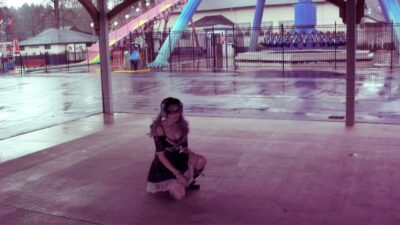

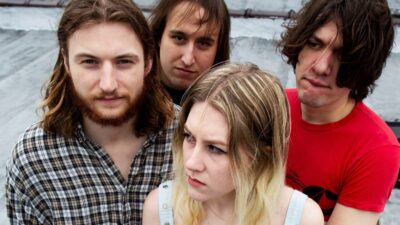

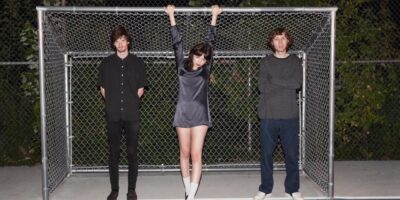

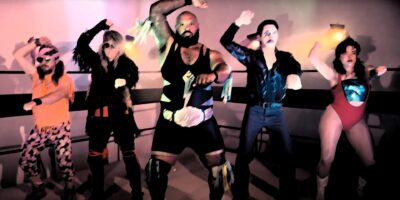
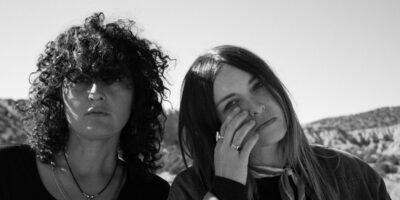

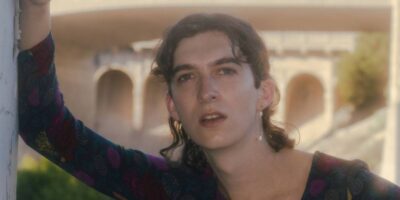


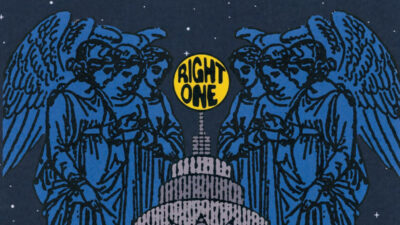
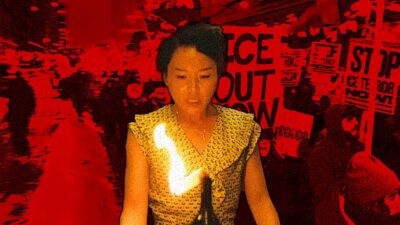
Comments